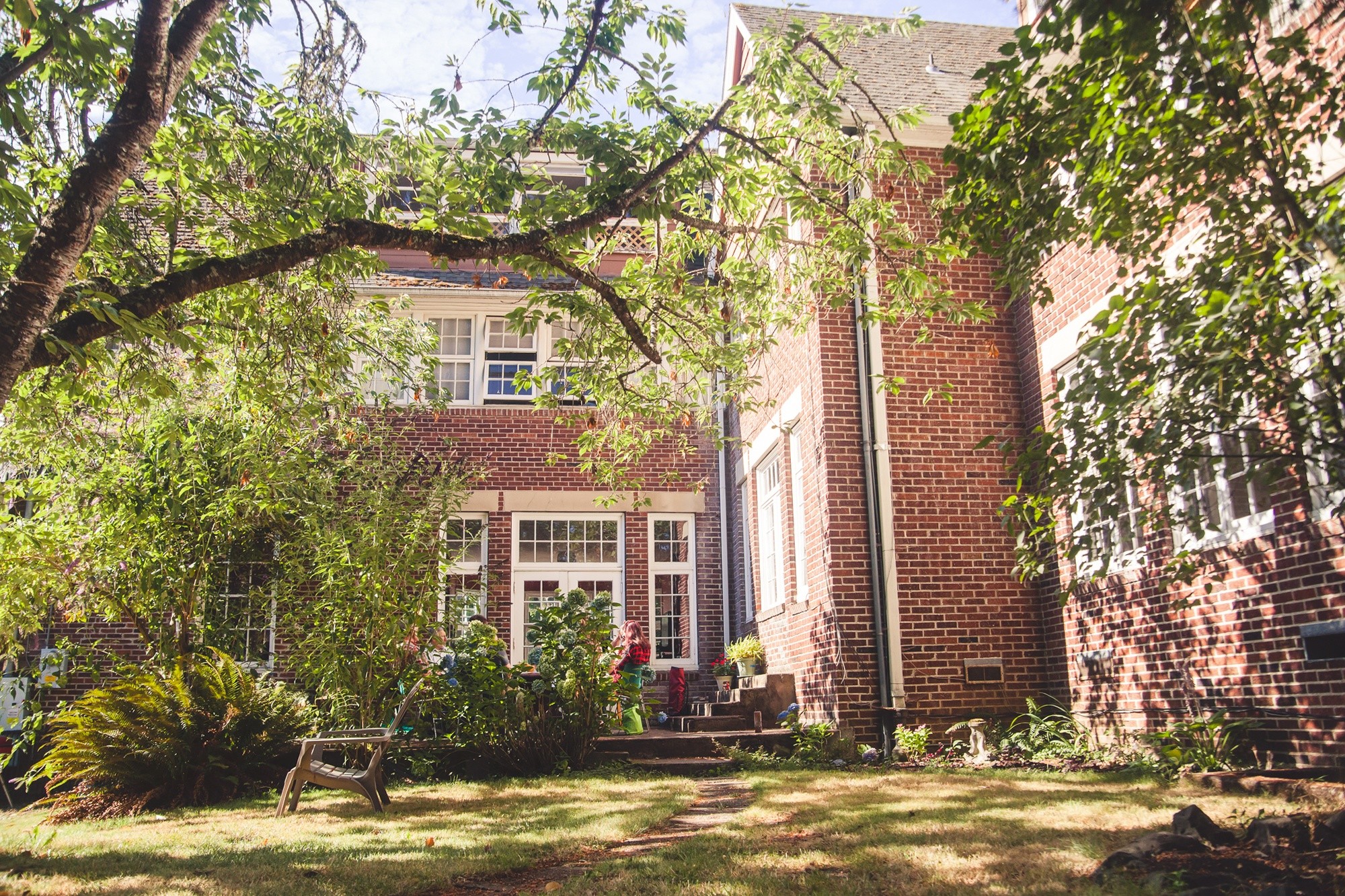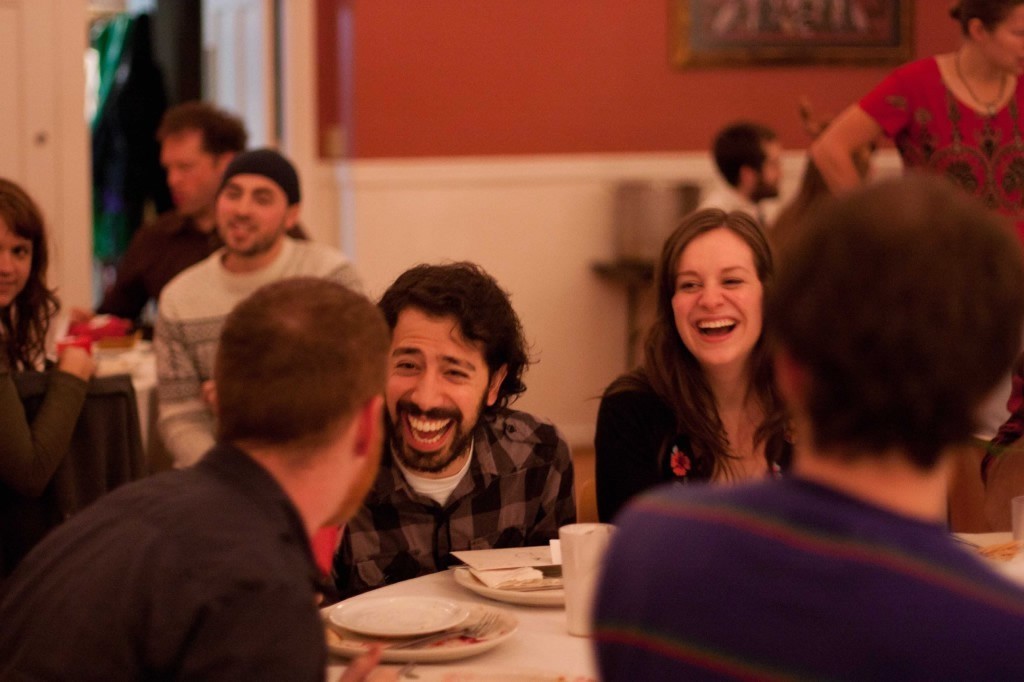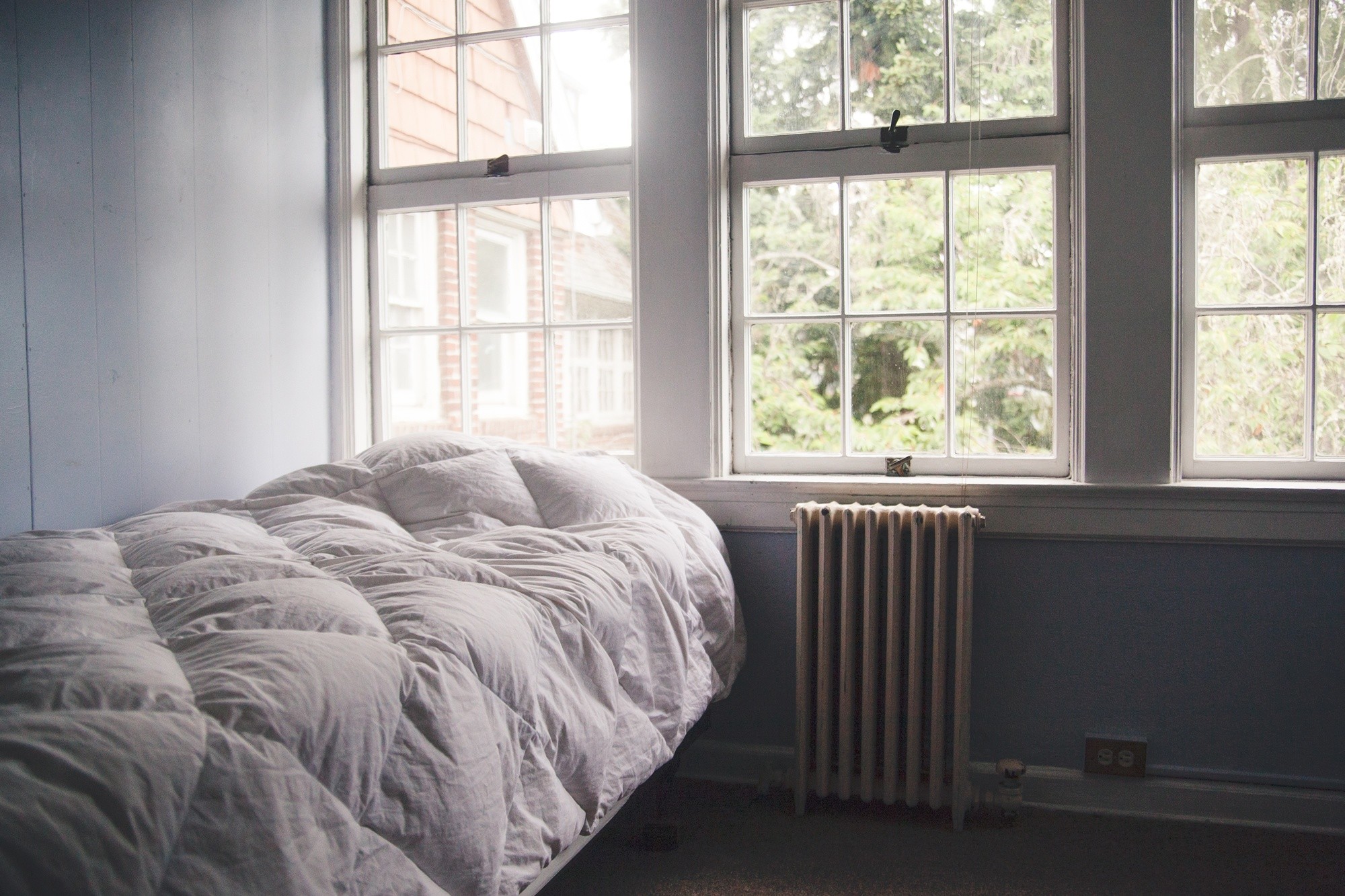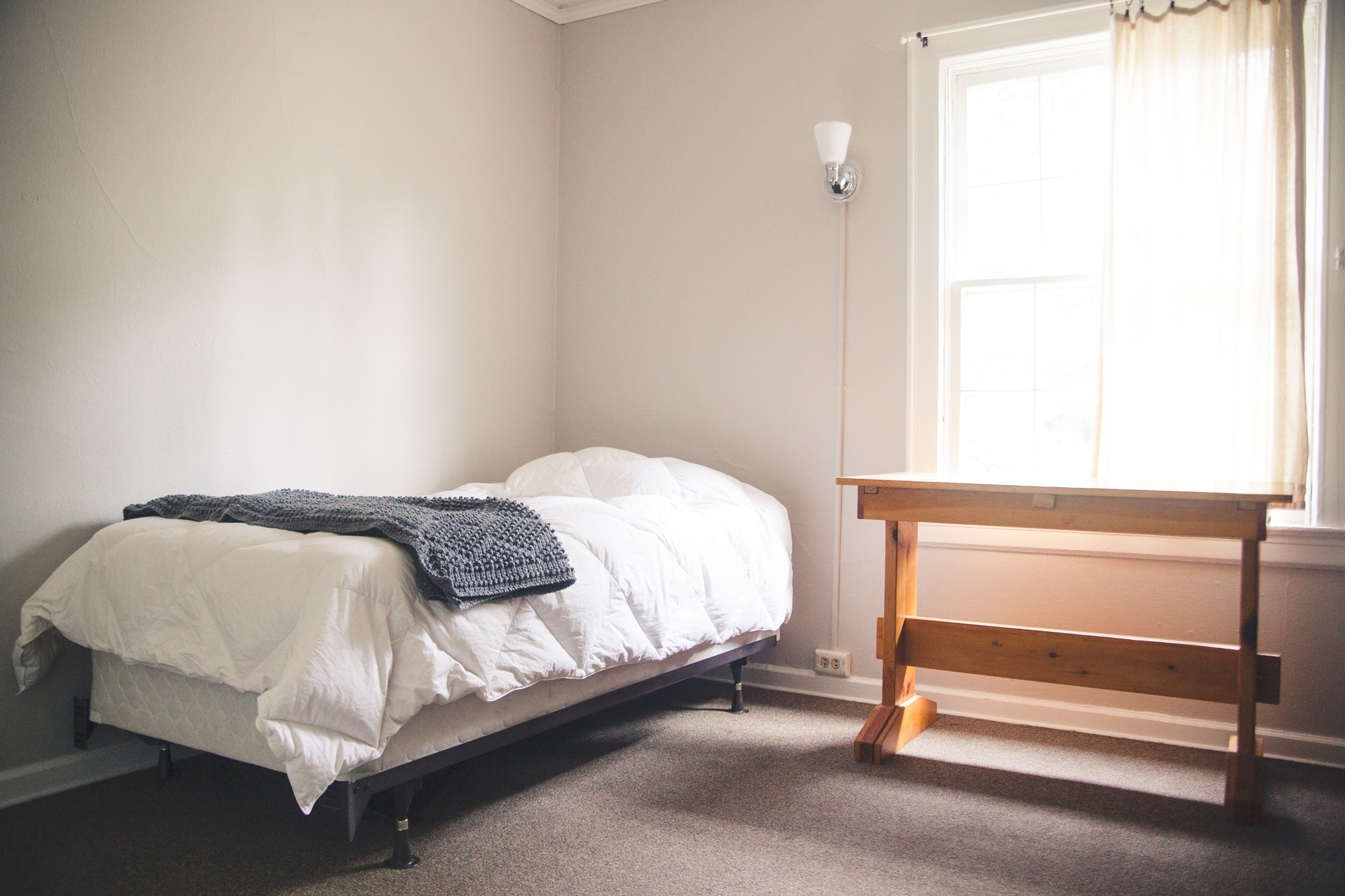This page is where you will learn what you will need for your Residence Program Application for Gutenberg College (living on campus). See also: Financial Aid Application | New Student Application.
The Gutenberg College Residence Program is a place to make true friends and have deep conversations. It is a community where residents can practice living a good life by caring for each other and asking honest questions about truth and faith.
The Residence Program is designed as a proactively supportive environment for those in pursuit of truth, personal responsibility, and the development of compassion for others. It is open to Gutenberg students and, as space allows, other young adults interested in participating in our unique community.
Like Gutenberg itself, the residence program is small — around 20 residents — which gives it an intimate, family-like atmosphere. Through the routine of attending class, studying, recreating, and performing domestic responsibilities together, a strong sense of community emerges where deep friendships are built and challenging conflicts are resolved.
This is an essential ingredient that makes the learning experience at Gutenberg College so special. Studying at Gutenberg involves asking critically important questions about what it means to be a good human being and then putting into practice the insight one gains from this inquiry. There is no better place to practice this than in the company of other people to whom you are directly responsible. In this sense, the residence program is like an intentional community, where the binding cultural values are courageous inquiry into the nature of the good life, and a commitment to practicing the good life in the company of fellow seekers.
Community is fostered by a number of organized activities within the Residence Program.
Meals are served every week night when school is in session. This time serves as a touchstone for the whole community, where everyone can come together, be nourished, and converse face to face. Attendance is mandatory and visitors are always welcome.
Chores, which address the campus’ regular maintenance needs, are split evenly between residents and often rotate. Learning to take responsibility and care for the basic infrastructure on which you depend builds character and is an essential part of living in a community. Quarterly workdays, where the entire community comes together to accomplish larger projects, are also held, and of course, meals are served.
The Residence Program at Gutenberg College is so much more than I expected. There is a real community here. Gutenberg will always have a special place in my heart.
~ Nicole (Munich, Germany)
The Campus Residence
Gutenberg College is housed in a beautiful 17,000-square-foot brick building built in 1939 as a sorority. The building accommodates a small number residents, who reside in separate halls for men and women. Classrooms, offices, a library, a community living room, a kitchen, and an on-site laundry facility are also located in the building along with the Puccinelli Art Gallery. Outside, a lovely landscaped yard surrounds the building, and a garden plot is available for residents’ use. Gutenberg sometimes leases houses near the college building to provide additional housing for Gutenberg’s Residence Program.
House Managers
A critical part of the Residence Program is the presence of House Managers. House Managers live on campus and are responsible for coordinating meals, chores, activities, and housing-related services. House Managers are also responsible for encouraging an environment and culture within the program that promotes Gutenberg College’s mission. As such, they are there to lead by example and be available as a resource to residents in need of guidance and support.
Gil and Erin Greco
Gil and Erin Greco are Gutenberg’s Residence Program house managers. They both graduated from Gutenberg College, Gil in 2012 and Erin in 2010. They met in 2008 while living in the Residence Program and lived there until their marriage in 2010. In 2013, they moved to Kansas City, Missouri, where Gil taught at a Classical Christian high school, Erin started a photography business, and two of their sons were born. They returned to Gutenberg in June 2018 to give back to the community that they were so thankful to be a part of. In 2020, they welcomed their third son into their family.
Resident Requirements
Although the routine of the house is largely unstructured, residents are required to participate in a variety of activities related to community living. All residents must sign a Residency Agreement in which they agree to abide by the policies in the Resident Handbook, including the Gutenberg College Code of Student Conduct.
Residents are free to pursue their lives and relationships in the house in an atmosphere of mutual support and encouragement. Because the staff and faculty of Gutenberg College are committed to creating an environment conducive to students learning to make adult decisions on their own, what the Residence Program requires—and does not require—of students has been carefully considered. The absence of some rules to regulate individual choices should not be interpreted as disregard or lack of concern for the importance of such decisions; on the contrary, individual choices are vitally important. The Residence Program seeks to provide an environment where residents can decide for themselves on important issues and, in the process, learn about decision-making in an atmosphere supportive of their faith. The Gutenberg College staff and faculty are always ready, however, to provide their input and experience to help students make wise decisions.
Cost of Residence Program
The cost for residency ranges from $5,175 to $6,165 for the academic year (depending on the room the resident occupies and if a special diet is requested) and is due when the resident moves in. A payment plan is available upon request. The Residence Program fee includes the following:
- A room;
- Meals program;
- Activity program (annual retreat, holiday parties, etc.);
- Basic utilities, including Internet;
- Household supplies (light bulbs, toilet paper, etc.);
- Shared use of the common resident areas.
How to Apply to the Residence Program
March 1 is the deadline to apply for fall housing. Housing is limited and fills up quickly. Qualified applicants are admitted in the order in which they apply, although preference is given to Gutenberg College students, who are urged to apply early. Applicants for whom no room is available are placed on a waiting list. Although students are urged to apply by March 1, the Residence Program accepts applications throughout the year, and rooms occasionally become available. These vacancies are offered first to people on the housing waiting list and then made available to new applicants.
Application Process
(1) Applicants are required to read the Resident Handbook before applying to the Residence Program.
(2) After reading the Resident Handbook, applicants may complete the Application for Residence online. Applicants will be asked to provide the names of two personal references, people who know the applicant well and can address the question of how the applicant might contribute to, benefit from, and be challenged by the Residence Program.
(3) A $20 application fee is required when applying for residence, and applicants will be asked to pay the fee online. (The application fee is waived for students also applying to Gutenberg’s undergraduate program.)
(4) After the application and fee have been received, Residence Program staff will schedule an interview. The purpose of this interview is to allow both the applicant and the Gutenberg staff to determine whether the applicant’s residence at Gutenberg would be mutually beneficial. Because of the cooperative nature of the living situation, residents must be responsible, tolerant, and considerate in order to participate in the Gutenberg College Residence Program.
This page is where you will learn what you will need for your Residence Program Application for Gutenberg College (living on campus). See also: Financial Aid Application | New Student Application.












